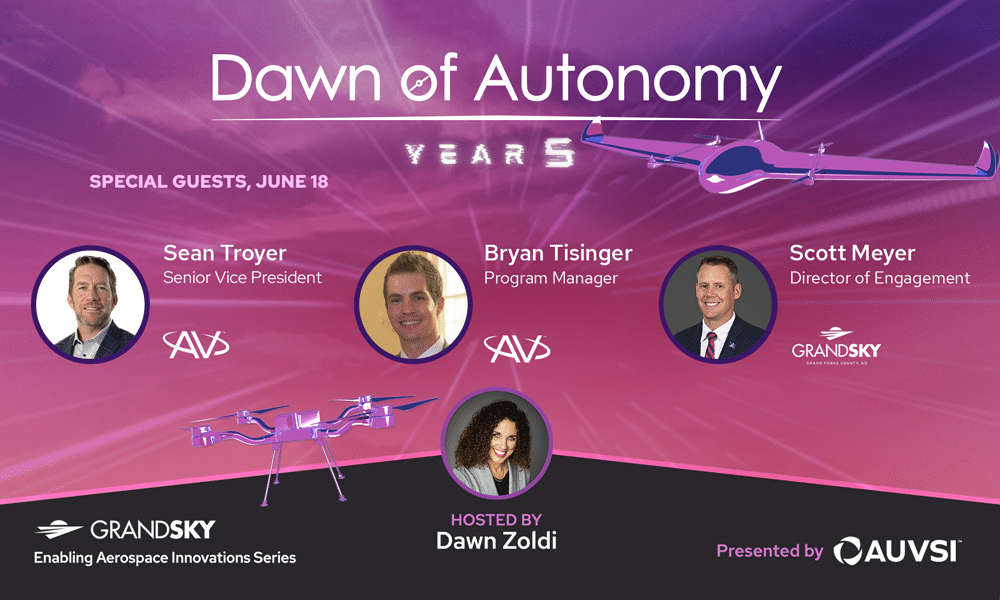PwC’s Peter Brown emphasizes need to harness the power of people on the path toward autonomy and beyond
May 4, 2021 | Amy French

Workforce transformation expert Peter Brown on Tuesday helped to kick off XPONENTIAL 2021 – a virtual gathering focused on “all things unmanned” – with emphatic advice for business leaders to take the necessary measures to keep people on board.
Brown – who has more than 20 years of experience helping large, multinational organizations tackle people challenges – holds the title of Global Clients and Markets Leader at PwC. He cited a recent PwC survey of 32,500 workers in 19 countries regarding their hopes and fears about the impact of technology that found a mixture of optimism, enthusiasm and anxiety.
For example, the survey found that 50 percent feel excited or confident about the future world of work. But 35 percent expressed worry, and another 15 percent said they prefer not to think about the future. Thirty-nine percent said they expected their jobs to be obsolete within five years.
“It’s so important for leaders to be cognizant of that potential anxiety in the workforce,” Brown said. “Because we know anxiety kills confidence,” and confidence drives the willingness to innovate.
But what kills anxiety? Brown named three priorities that leaders can set as a starting point:1. Communicate a clear narrative around change.2. Invest in upskilling workers to help them survive and thrive.3. Earn trust with good corporate citizenship and transparency about agendas and decisions.
Regarding the first priority, Brown explained that leaders who impart certainty about a company’s driving purposes can help to mitigate uncertainty about changing technologies and processes. Leaders who engage workers in conversations about challenges and how to address them can further inspire a sense of ownership in solutions and a shared understanding of the need to adapt and innovate.
Regarding the second priority, Brown said the best leaders invest in upskilling efforts that help workers at all levels adapt to current changes and the changes ahead. That includes not just training in specific technologies, which will continue to evolve, but training in the soft skills that are timeless and impossible to automate. It’s about, he said, “protecting people, not jobs.”
“There’s no point in trying to protect jobs that are prone and very likely to be displaced by technology. But there is a responsibility, we would suggest, to support the people – to help people be equipped such that they can perform and deliver and be relevant in the digital world.”
Regarding the third priority, Brown noted that 75 percent of surveyed workers said they want to work for an organization that, beyond making money, is making a positive contribution to society. Efforts to improve the world in areas such as inclusivity and climate-change mitigation help to build trust, he said, not only among workers but consumers. “We know that being sustainable and driving profit are not mutually exclusive and can be done together,” Brown said. “And great organizations are certainly doing that.”
By and large, workers are capable of adapting and thriving in times of change if they have the tools and support they need, Brown said. He cited the amazing adjustments that have occurred during the pandemic as proof.
“In a short amount of weeks, couple of months at the most, most organizations managed to pivot … to a totally remote operation,” he said, further noting that 45 percent of workers have used the past year to learn new digital skills. “We’ve seen the extraordinary power of people.”
- Industry News


